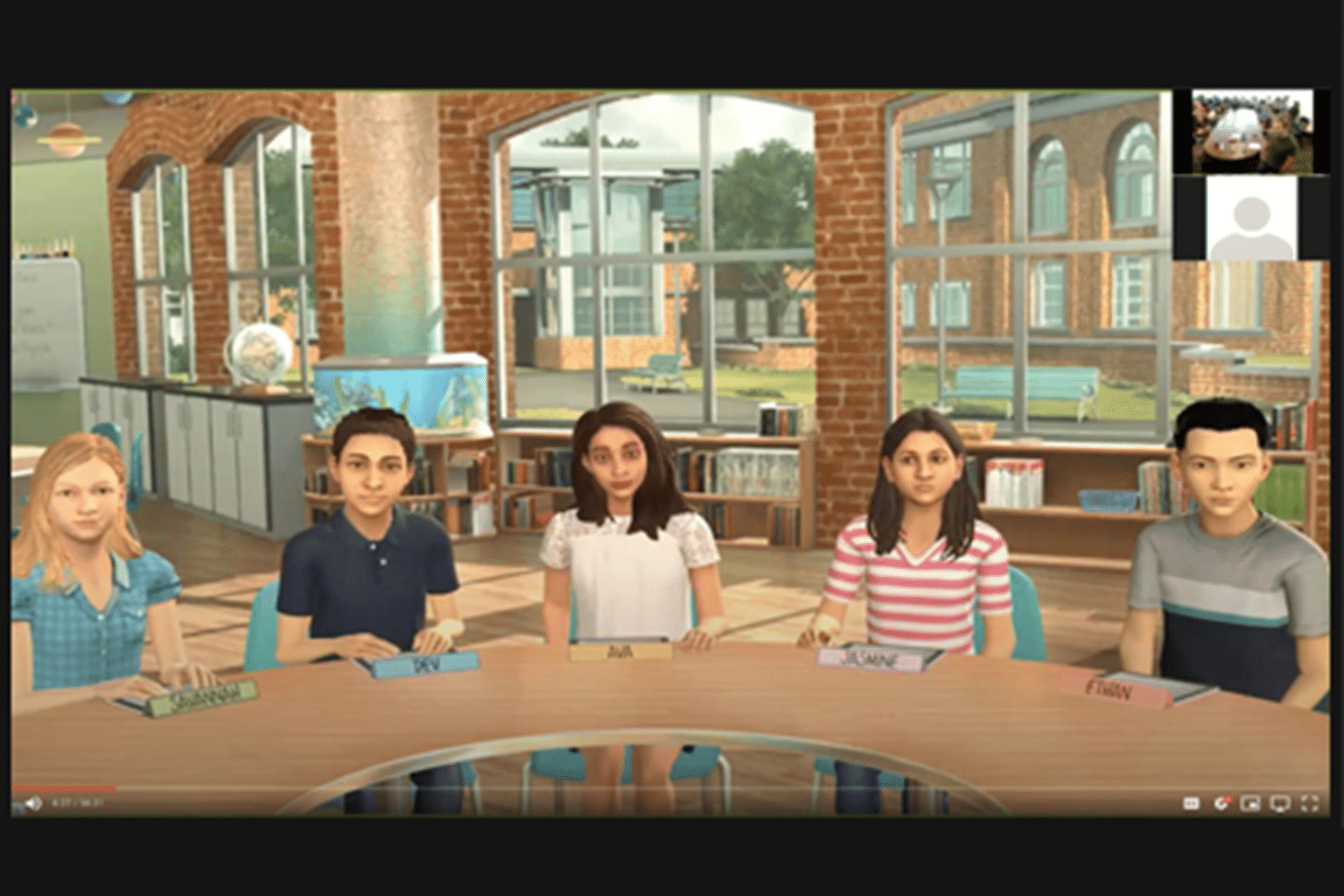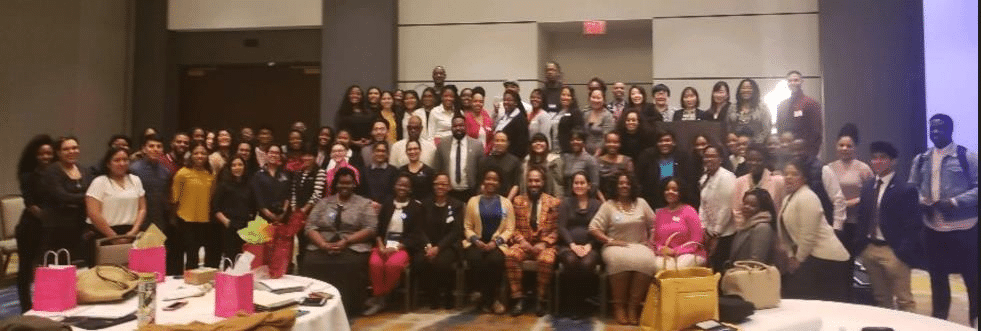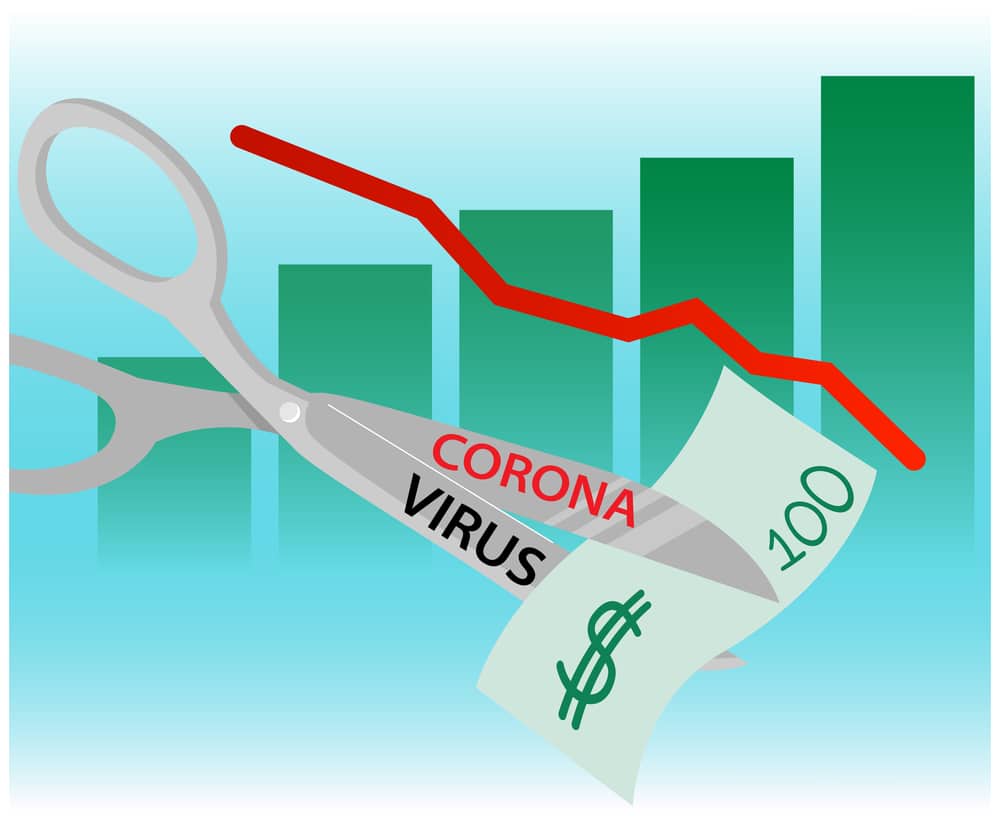17 Dec2020
By Stefanie Dion Jones
This article originally appeared in UCONN Today and is reprinted with permission.
This fall, the American Association of Colleges for Teacher Education (AACTE) selected UConn’s Neag School of Education to join its Holmes Scholars Program, a nationwide network of higher education institutions seeking to support students from historically underrepresented communities enrolled in graduate programs across the field of education.
For current and prospective Neag School doctoral students, the Holmes Scholars Program will offer an array of benefits — including numerous opportunities for mentorship, peer support, networking, and professional development. In addition, the Neag School has pledged to cover the costs of sending each of its Holmes Scholars to the AACTE’s annual conference, as well as the two-day preconference exclusive to Holmes Scholars, for a minimum of three years.
17 Dec2020
By Alana Dunagan
While many things have changed or been put on hold over the last several months, academic goals don’t have to. Some of the biggest changes brought on by the current pandemic are the way American students are going to school and how adult learners earn their degrees.
In Texas, more than 40,000 teaching positions are still open and as more teachers retire, school administrators have more positions than applicants to fill them. With the growing need for in-person and online schooling, there is an ever-increasing demand for qualified teachers. That’s why WGU Texas is offering the special Become a Teacher Scholarship to help paraprofessionals and other aspiring teachers get started on their teaching degrees.
The Become a Teacher scholarship program assists recipients with $2,500 in scholarship funds awarded at $625 per six-month term for up to four terms and an additional $1,500 stipend during student teaching. These funds can be applied toward any of WGU’s Teachers College degree programs leading to teacher licensure.
17 Dec2020
By Ruth Campbell
This article originally appeared in Odessa American and is reprinted with permission.
University of Texas Permian Basin’s new certification program in early childhood prekindergarten through third grade education has one semester in the books.
Dean of the College of Education Larry Daniel said they have 11 to 12 students in that major.
“It’s our first semester this fall, so we’re expecting that program to continue to grow. I know we’ve had a lot of inquiries but I don’t have a precise figure. … We are expecting that program to continue to grow and having teachers certified, particularly with the early childhood area,” Daniel said during a Zoom Early Childhood Action Network meeting this week.
ECAN is a committee of the Education Partnership of the Permian Basin. The Education Partnership of the Permian Basin is a nonprofit organization focused on supporting and improving the quality of education throughout the Permian Basin from cradle to career, its website said.
17 Dec2020
By Linda Minor

Want to know everything that is happening at the 2021 AACTE Annual Meeting? The Event Planner has the entire schedule for each day (all times listed in the Event Planner are Eastern Time).
Once you have logged in to the Event Planner, you will be able to
- Browse the Full Schedule – You can use the search field at the top to locate sessions by presenter name (first or last), title, keywords, and other fields.
- Access Session Information – See a session you might be interested in? Just click on the session title to access a description and list of presenters.
- Plan Your Annual Meeting Experience – When you find a session you want to attend, just click the “add” button next to the session information. This will store the session to your schedule (which you can access at any time by clicking the “My Schedule” tab at the top).
- Sync AACTE’s Annual Meeting to Your Calendar – At any time, you can visit “My Schedule” to both print a copy of your schedule and send invite requests to your electronic calendar(s) for each session you wish to attend.
- Share Your Work with Other Attendees – Want to get other attendees interested in your session? If you are the presenter of a session, you can upload your slides, handouts, and other documents at any time. Just click on the “Sessions I’m Presenting” tab at the top of your page, and then click the “manage handouts” button next to the session you wish to add documents to in the schedule.
17 Dec2020
Increase Focus on Technology and Commitment to Equity and Diversity
By Matt Vanover
 The Council for the Accreditation of Educator Preparation (CAEP) Board of Directors has approved changes to the 2013 CAEP Standards for educator preparation. The CAEP Standards guide the nation’s top schools of education, those that are CAEP accredited, in preparing future K-12 teachers. The changes the Board approved include streamlining language, strengthening emphasis on technology, equity, and diversity. The revised standards are in effect for providers with visits in spring 2022.
The Council for the Accreditation of Educator Preparation (CAEP) Board of Directors has approved changes to the 2013 CAEP Standards for educator preparation. The CAEP Standards guide the nation’s top schools of education, those that are CAEP accredited, in preparing future K-12 teachers. The changes the Board approved include streamlining language, strengthening emphasis on technology, equity, and diversity. The revised standards are in effect for providers with visits in spring 2022.
“The changes to the standards maintain our commitment to continuous improvement for our organization and our providers. The CAEP Standards were developed in 2013 to unify the profession under a single set of standards, with a commitment to ensure they remain rigorous. The enhancement to the standards is based on research to ensure rigor and relevance,” said CAEP President Christopher A. Koch. “CAEP providers are committed to preparing graduates that are ready to teach all students on the first day they enter a classroom.”
17 Dec2020
By Margie Low

Photo: A screenshot of Cal State LA student-teachers interacting virtually with avatar pupils in a simulated classroom. (Credit: Cal State LA)
California State University, Los Angeles (Cal State LA ) has been awarded a three-year, $586,000 grant from the National Science Foundation (NSF) to train future teachers in math and science instruction using a simulation lab.
The grant will establish Simulations for Minority Interactive Learning Environments (SMILE): A Design and Development Project at Cal State LA. The project will feature a simulation lab that will help prepare elementary teachers who will work in high-need urban schools to offer a successful learning experience in math and science.
Researchers will also study the integration of the use of mixed-reality virtual simulations in teacher preparation across several courses in the university’s Multiple Subject Teaching Credential Program. Faculty in Cal State LA’s Charter College of Education (CCOE) will create scenarios and develop scripts specifically intended to teach STEM concepts.
15 Dec2020
By Teresa Foulger, Kevin J. Graziano and Arlene Borthwick
This article originally appeared on the ISTE blog and is reprinted with permission.

If teacher candidates are to learn how to integrate technology, teacher educators and PK-12 mentor teachers must value, promote and demand that technology be an essential element to good teaching. Furthermore, teacher candidates and novice teachers must have ample opportunities to practice teaching with technology during their field experiences and student teaching.
A new paradigm for practice
In his book, Outliers, Malcolm Gladwell writes about the connection between practice and success. Experts, he writes, do not “float effortlessly to the top while practicing a fraction of the time their peers did.” Gladwell believes dedicating an enormous amount of time to practice is one of the most important factors in developing excellence. As such, “Practice isn’t the thing you do once you’re good. It’s the thing you do that makes you good.”
Educators concerned with developing expertise remind us that not all practice is created equal. In a recent blog post, James Clear, author of Atomic Habits (2018), writes, “…at any level of skill, (if you) practice in the same way you always have you’ll get the same results you always have.” Applying a more purposeful and powerful conception of practice to educational technology calls for teacher educators and PK–12 mentor teachers to distinguish between time spent in repetitive activities to integrate research-based teaching from how time practicing is actually spent as a way to improve teaching with technology.
15 Dec2020
By Jerrica Thurman
Tackle problems of practice with experts from the field during AACTE’s virtual
2021 Annual Meeting, February 24-26. Share your experiences and converse with peers and partners to advance your own work and drive innovation in educator preparation. AACTE-sponsored Learning Labs will present effective strategies for continuous improvement in areas such as:
- Navigating Student Supports in a Financial Crisis
- Identifying, Understanding, and Replacing Racist Curricula
- Future-casting: What does the Future of Education Look Like? How Can AACTE and it’s Partners Help to Advance the Field?
- What are the Latest Developments with the Biden Administration and the New Congress?
- Publishing in JTE
- Preparing Educators for Equitable Family, School, and Community Engagement
- Disrupting Inequities: Local and Global initiatives for Shared Responsibility in Diversity, Equity, and Social Justice
- Advocacy Talks and Town Hall—Your Voice in Advocating for the Profession
15 Dec2020
By Jane E. West
Welcome to Washington’s “end of the semester” sprint. Will that FY 2021 spending bill cross the finish line by the end of the year or be pushed into next year for the new Congress to grapple with? Will the President refuse to sign the bill and cause a government shutdown? Will there be another COVID relief bill any time soon? And how about the Biden Secretary of Education?
Congress Punts FY 2021 Funding Bill and COVID Relief Package until Next Week
They say there is nothing that focuses the mind like a deadline. In Washington, that means moving the deadline to the edge of the cliff before acting. This week, the House and Senate agreed to extend the December 11 deadline for funding the government to next Friday, December 18, giving them an additional week to negotiate and finalize the $1.4 trillion bill. President Trump is expected to sign the bill, called a continuing resolution, but he is a hard one to predict.
Consensus on a bi-partisan COVID relief bill seems to be growing on one day and shrinking the next. Many appear hopeful that another week could bring them to closure so that the COVID relief bill and the FY 2021 spending bill could be packaged together and delivered to the White House as an early Christmas present. There could also be a further extension of the deadline, even through Christmas. Speaker Pelosi (D-CA) has said she is not leaving town without a deal on both.
15 Dec2020
By JTE Insider

Read the recent JTE Insider blog interview by the Journal of Teacher Education (JTE) editorial team. This blog is available to the public, and AACTE members have free access to the articles in the JTE online archives—just log in with your AACTE profile.
This interview features insights on the article entitled, “Using Video to Highlight Curriculum-Embedded Opportunities for Student Discourse” by Abby Reisman and Lisette Enumah. The article was published in the November/December 2020 issue of the Journal of Teacher Education.
Article Abstract: History classrooms remain stubbornly resistant to instructional change. We explored whether using classroom video to help teachers identify curriculum-embedded opportunities for student discourse improved their understanding and facilitation of document-based historical discussions. We observed a relationship between teachers’ capacity to notice curriculum-embedded opportunities for student discourse in classroom videos and their growth in enacting document-based history discussions. For three of four teachers, the intervention appeared to improve both their analysis of document-based discussion facilitation and their enactment of the practice. Teachers’ incoming proficiency and familiarity with document-based history instruction appeared to inform their experience throughout the intervention. We discuss implications for practice and future research on professional development for history teachers.
15 Dec2020
By AACTE

AACTE is pleased to announce the 2020 recipients of the new AACTE Video Observation Technology Implementation Grant. AACTE offered the grant in partnership with Edthena to help educator preparation programs enhance training for future teachers in methods courses, field observations, skill building, and group learning via advanced technology.
“Both AACTE and Edthena understand that video observation technology has the potential to positively impact candidates during and after the COVID-19 pandemic,” said Lynn M. Gangone, AACTE president and CEO. “AACTE is proud to collaborate with partners like Edthena to promote technology growth in schools and colleges of education.”
14 Dec2020
By Pamela Carroll

Did you know that over 1,000 traditionally underrepresented doctoral students have benefitted from the AACTE Holmes Scholars Program? Through networking, collaboration, mentoring, leadership opportunities, and research activities, the program provides high-achieving minority students with rich professional development. In fact, you probably know a former scholar, as many are now in tenured faculty and leadership positions at institutions across the United States.
Educator preparation programs (EPPs) are keenly focused on developing strategies to advance the field of education, close the equity gap, and make a more diverse teacher workforce a reality, and the Holmes Scholar Program is an essential component to achieving those goals. To promote diversity of the education profession and to prepare educators who can serve diverse learners, the program provides EEPs with the opportunity to attract students from historically underrepresented communities, increase the retention and graduation rates of doctoral students of color, and strengthen the institution’s role as a leader in supporting diversity.
14 Dec2020
By Lynn M. Gangone
These are indeed difficult times for all levels of education, yet AACTE member institutions remain dedicated to high-quality, evidence-based preparation that assures educators are ready to teach all learners. AACTE continues to advocate for and support schools and colleges of education in their efforts to navigate the teacher shortage and COVID-19 related financial challenges, and their work to identify viable solutions to the multiple challenges that currently impact education.
The global pandemic has deepened the national teacher shortage crisis. College and university programs that prepare our teachers, principals, school counselors, and other essential education professionals are experiencing a debilitating wave of closures and faculty layoffs. The rising demand for high-quality education in the 21st century and achieving a prosperous quality of life for themselves and their families. It is critical now more than ever to recruit diverse, talented people into the education profession, which requires our nation’s leaders allocating funds to aid colleges and universities in their recovery from the significant financial challenges caused by the pandemic. It is also critical for legislators to revamp policies and practices to support a diverse education workforce.
11 Dec2020
By Meghan Grenda
AACTE’s new Member Spotlight features an individual from a member institution, highlighting how their work makes a difference in classrooms across the country. Nominate yourself or another member by providing a response to the following questions and sending to mgrenda@aacte.org.
Get to know Paul Massy …
Current position: Graduate Teaching Assistant, Florida Atlantic University
Expected Graduate Year: 2024
Alma Mater(s): Corinth Teachers College; University of the West Indies (U.W.I.), St. Augustine
Hometown: Arima (Trinidad and Tobago); Boca Raton, Florida
11 Dec2020
By Ward Cummings
 This month, AACTE joined like-minded institutions in writing a letter to congressional leaders in updating their earlier findings regarding four key COVID-19-related economic indicators that are placing significant financial burdens on higher educational institutions. The emergence of more detailed data regarding these four categories (enrollment, student financial need, auxiliary revenues, and new expenditures) revealed the troubling truth that our prior estimates about the impact of COVID-19 on the economic health of educational institutions was significantly underestimated and that the challenges students and schools are facing are far more severe than initially thought.
This month, AACTE joined like-minded institutions in writing a letter to congressional leaders in updating their earlier findings regarding four key COVID-19-related economic indicators that are placing significant financial burdens on higher educational institutions. The emergence of more detailed data regarding these four categories (enrollment, student financial need, auxiliary revenues, and new expenditures) revealed the troubling truth that our prior estimates about the impact of COVID-19 on the economic health of educational institutions was significantly underestimated and that the challenges students and schools are facing are far more severe than initially thought.
As a consequence of these updated findings, AACTE signed on to a new letter urging Congress and the Administration to finalize negotiations as quickly as possible on a supplemental spending bill of sufficient size to provide at least $120 billion in needed support to students and campuses across the country. The detailed new findings described in the letter, while suggesting a potentially long, painful economic road ahead for some higher ed, provides a detailed and illuminating accounting of the many ways COVID-19 is burdening enrollment, student aid, and revenues at institutions of higher learning around the country.



 The Council for the Accreditation of Educator Preparation (CAEP) Board of Directors has approved changes to the 2013 CAEP Standards for educator preparation. The CAEP Standards guide the nation’s top schools of education, those that are CAEP accredited, in preparing future K-12 teachers. The changes the Board approved include streamlining language, strengthening emphasis on technology, equity, and diversity. The revised standards are in effect for providers with visits in spring 2022.
The Council for the Accreditation of Educator Preparation (CAEP) Board of Directors has approved changes to the 2013 CAEP Standards for educator preparation. The CAEP Standards guide the nation’s top schools of education, those that are CAEP accredited, in preparing future K-12 teachers. The changes the Board approved include streamlining language, strengthening emphasis on technology, equity, and diversity. The revised standards are in effect for providers with visits in spring 2022. 






 This month, AACTE joined like-minded institutions in writing a letter to congressional leaders in updating their earlier findings regarding four key COVID-19-related economic indicators that are placing significant financial burdens on higher educational institutions. The emergence of more detailed data regarding these four categories (enrollment, student financial need, auxiliary revenues, and new expenditures) revealed the troubling truth that our prior estimates about the impact of COVID-19 on the economic health of educational institutions was significantly underestimated and that the challenges students and schools are facing are far more severe than initially thought.
This month, AACTE joined like-minded institutions in writing a letter to congressional leaders in updating their earlier findings regarding four key COVID-19-related economic indicators that are placing significant financial burdens on higher educational institutions. The emergence of more detailed data regarding these four categories (enrollment, student financial need, auxiliary revenues, and new expenditures) revealed the troubling truth that our prior estimates about the impact of COVID-19 on the economic health of educational institutions was significantly underestimated and that the challenges students and schools are facing are far more severe than initially thought.